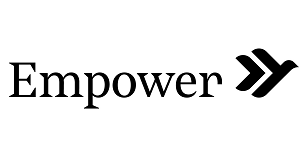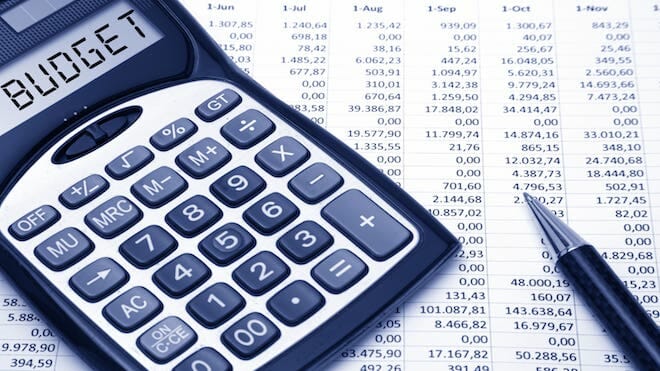Becoming financially independent for the first time is thrilling, but there’s a lot to learn. Many of us (myself included) learn the hard way and always seem to be waiting on payday or juggling credit card bills.
At some point, you might stop to ask yourself:
- Why am I always running out of money?
- I should be saving something, but how?
- Do I have to deprive myself?
Creating a budget helps answer those questions and more. Paradoxically, working within the limits of a budget can make it easier to spend on things you enjoy with less anxiety.
Start by checking out our video below to see just what a realistic budget looks like.
Why you should start budgeting
Good money management comes down to one thing: Spend less than you earn so you can save money for future needs. A budget is simply a plan to ensure you 1) don’t run out of money and 2) have some money left over to save and invest.
It doesn’t matter how big or small your paycheck is. The earlier you start investing, the more money you’ll have later in life.
Young investors become millionaires
Here’s a quick example of how powerful compound interest can be and why people who start investing early build so much more wealth.
At 22, Jay invests $500 at a 7% return. He continues investing $500 every month and by the time he turns 65 years old, his investment earns him nearly $1.3 million.
Molly follows the same investment plan but waits until 30 to start. When Molly turns 65, her investment is only worth $650,000. Those eight measly years that Jay had on Molly helped him end up with twice as much money!
The key is to give your money time to maximize interest. You don’t have to start big. You just have to start.
Budgeting helps you hit goals
One day, if not already, you may aspire to buy your own home or invest in a business. When that day comes you’ll want to 1) be confident that you can afford it and 2) have money saved for a down payment.
Saving money takes commitment over a long-period of time. You don’t want to wait until you want to buy something to start saving.
Get the most out of your money
Your twenties are the best time to do the things you want to do when you’re still young and free of major responsibilities. With a spending plan, you’d be surprised at how much you can squeeze out of your income.
Tracking your spending helps identify areas for improvement so that you can spend less on things you don’t need and put that money towards something better. Like that sweet trip to Spain you’ve been thinking about.
Get out of debt
Get rid of that looming debt anxiety for good. Budgets make it easier to pay off your debt without putting stress on your paycheck. You can check off that list much sooner by making it a routine to save a little bit every month.
Be ready for unplanned expenses
Life happens. And that means emergency dental appointments, car problems, a leak in your roof – you get the idea. Budgets help make sure you always have extra funds cached for those unexpected incidents.
You shouldn’t have to waste money on high-interest loans or awkwardly grovel to your parents or friends. No one wants to see that.
How to start budgeting
The first step to start budgeting is to make a list of every dollar you earn and every dollar you spend in a month.
Find your monthly income
Gather all your income sources into one place. How much are you taking home a month after taxes?
- If you get paid every other week: multiply your paycheck by 2.166.
- If you get paid weekly: multiply your paycheck by 4.333.
- If your income fluctuates: you can average several months of income. Just try to be as conservative as possible.
Categorize your monthly spending
Keep it simple. Start with last month’s total expenses. Gather all your bills and receipts and figure out how much you’re actually spending per month.
You can do this yourself in a spreadsheet, but budgeting apps make it easier by automatically categorizing your credit and debit card purchases. Most are low-cost and some are free.
Break down your spending into categories that make sense for you. For example: living expenses, transportation, subscriptions (like Spotify or Netflix), groceries, medical, debt payments, entertainment. This is an eye-opening experience when you see how small frequent expenses add up over time.
Set a saving goal
Getting on the right financial track is a great objective, but it’s important to work towards something concrete. This helps motivate us to be diligent and consistent with our budgeting.
If you don’t have a goal, make one! A great first goal is creating an emergency fund for unplanned expenses.
Some other possible goals:
- Short-term goals: saving for a trip or a new couch.
- Medium-term goals: saving for a car, becoming debt-free.
- Long-term goals: saving for retirement or paying off your mortgage.
Set your financial framework
Start by weighing your expenses against your net monthly income. How much wiggle room do you have? What are your goals? What spending categories can use improvement?
Start setting ideal budget goals for each category. Be honest with yourself and your lifestyle. If you enjoy going out for dinners or drinks with friends, include that in the budget as well.
You can use this simple budget worksheet to keep track of spending.
Overwhelmed yet? That’s okay. There are tons of tools designed to make it easy to create and manage your ideal budget. An app like MoneyPatrol, for example, can be a great way to learn your own spending habits. You’ll set a budget each month, along with a spending goal for each category. MoneyPatrol links to your financial accounts to track your expenses. You’ll even get alerts when you go over your limit in a category. Over time, you’ll know enough about your own spending habits to be able to more accurately set a budget.
Adjust your budget
Keep in mind that our spending habits and income change. Make sure to adjust your budget accordingly. Also, make sure that your budget is actually sustainable. If you’re finding it difficult to stay within that framework, then change it. Be realistic with yourself.
Budgeting methods
You’ll probably wondering ‘what can I use to make budgeting work for me?’ Put down that Excel spreadsheet for Dummies. There are tons of resources for any type of budgeter – whether you want to do it all yourself or leave it to the professionals. Try as many as you want until you find one that sticks. Remember, it’s all about what works best for you.
The 50/30/20 Budgeting Method
The 50/30/20 budgeting method is a helpful place to start for budgeting newbies. Avoid convoluted spending categories. Simply divide your budget three ways: 50% towards living expenses and essentials (i.e. rent, groceries, utilities), 30% towards flexible lifestyle spending (i.e. entertainment, eating out, travel), and 20% towards your financial goals (i.e. savings, debt payments, investments).
Rather than giving up your social life, the 50/30/20 Rule gives you a whole 30% of your budget to spend as you please.
Good for:
- Budgeting beginners.
- People who want budgeting flexibility.
Kakeibo method
The Kakeibo method is a century-old budgeting technique from Japan that helps you save more with no technology required. Users answer some financial questions and set savings goals. After that, the next step is to track their expenses, put their purchases in categories, and review expenses at the end of every month.
This is designed to help you understand why you’re making a purchase that you may not even need.
Good for:
- Inconsistent budgeters.
- First-time savers and fearful budgeters.
Envelope method
The envelope method is this: store your allotted budget in the form of cash inside dedicated envelopes for each spending category. It’s a pretty old-school method, but a great option for people who want to set stricter limits for themselves.
Good for:
- Those who prefer using cash to credit or debit.
- People who need more financial boundaries.
Bullet journals
Bullet journaling has become a really popular way of organizing life and staying on top of tasks and goals. It’s now being used as a budgeting tool, too. Bullet journals are hyper-organized and personalized logbooks, which are regularly updated by you. Writing down goals or reminders can hold more weight for people than just typing them out or passively relying on an app.
Good for:
- People who like to physically write down their tasks.
- People who want total control of their budgeting.
Budgeting tools
These are some of the best budgeting apps available to help you get started budgeting.
You Need a Budget (YNAB)
YNAB is a personal finance management app that syncs with your banking and credit accounts built on the idea that every one of your dollars has a job.
You Need a Budget (YNAB) is more than a software program; it’s a lifestyle for budgeting.
Whether your goal is to get out of debt, break the paycheck-to-paycheck cycle, grow your savings accounts, or all of the above, YNAB’s theory is that giving every dollar “a job” can help.
- Easy to get started with free trial
- Track spending and saving goals
- Both automatic and manual account linking
- No spammy advertising or upsells
- Learning curve for best use
- Ongoing fee applies
The main focus of YNAB is on creating and readjusting your budget so it works as your needs change. It’s based on these four principles:
- Give every dollar a job.
- Embrace your true expenses.
- Roll with the punches.
- Age your money.
Budgeting with YNAB helps you stay on target with spend tracking across categories while also teaching you about money management. YNAB does cost $14.99/month ($99/year), but many YNAB devotees swear by it as it can be well worth the price of admission.
Good for:
- People who want to revolutionize their finances.
- People who want a highly involved system that adjusts with your life.
» MORE: Try YNAB or read our full You Need A Budget review.
Empower

Empower lets you track your spending, save automatically, get up to $250 Cash Advance¹, and more.
You can create your own budgeting categories (or pick from Empower’s) so no matter where you spend, you can get alerts if you’re about to hit your spending limits. You’ll also have access to monthly reports that let you know how you’re managing your money.
If you’re looking to save, but don’t have the time or energy to think too much about it, you can use Empower’s AutoSave feature. Simply tell Empower how much you want to save each week, and Empower will move over your money so you don’t need to remember to do it manually.
While Empower does cost $8/month (after a 14-day free trial) their automated features may be well worth the cost.
Good for:
- Automated budgeting and saving.
- Those who may be strapped for cash and need a Cash Advance.
» MORE: Read our full Empower review.
Simplifi
Simplifi was created by Quicken which is a powerhouse in the world of financial software. The Quicken products have been used by over 25 million people over four decades.
Simplifi by Quicken delivers a fresh personal finance app from an undeniably trustworthy brand to keep up with all of your money in one easy-to-use interface.
You won’t have to spend time bopping from account to account just to see where your finances stand. Instead, you can log into Simplifi to see the big picture at a moment’s notice.
- Provides extensive financial reports
- User friendly experience
- No ads
- No free version
- No credit score insights
Simplifi connects to your bank accounts and automatically pulls in all of your transactions for easy categorization. It also recommends a budget based on your past spending habits but that is fully customizable. In addition to your bank accounts, it can also connect to your loans, savings, and investment accounts so you can see your whole financial picture at a glance.
You can also set goals and see your progress as you work towards them. It also allows you to pull reports so you can see exactly how you’ve spent your money. This can be a real eye-opener.
Good for:
- People who want to see their whole financial picture on one screen.
- People who want to easily track their spending.
» MORE: Learn more about Simplifi
How you can use credit cards to budget
Tracking and charting all of your expenses can get overwhelming, but luckily, most credit cards do that for you automatically. Credit cards offer great budgeting resources. They keep track of your expenses on an ongoing basis and organize your spending into different categories. Plus, you can loosen that budget even more by earning rewards on every dollar you spend.
Here are a few of my favorites:
» Best travel rewards card: Chase Sapphire Preferred® Card review
» Best card for pretty good credit: Capital One QuicksilverOne Cash Rewards Credit Card review
Single card tracking
A great option for novices and experts alike is to limit your purchases to just one payment source. It comes with many benefits, but can especially be useful if you get flustered trying to manage all your bills, credit cards, and debit cards. Instead, you just need to keep track of one card. You also reduce the number of bills you need to think about every month.
As I mentioned, most credit and debit cards have amazing built-in tracking systems that organize your spending into charts. By using just one card, you can use these services as they were intended, without having to consolidate with data from other cards. And if you’re using a credit card as your primary payment method, you’ll earn rewards much quicker.
Good for:
- People who have trouble managing many different payment methods.
- People who want simpler finances.
- Rewards-conscious people.
Summary
This list only skims the surface of the many finance tools designed to help you succeed. With the right framework and the right tools, like YNAB, it’s easy to keep your finances in check. And that means less worrying and more money for the things you want. It’s pretty much a no-brainer. So what are you waiting for?




